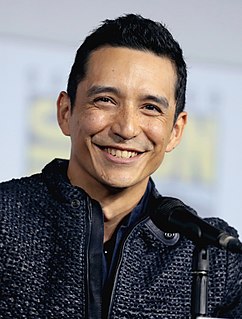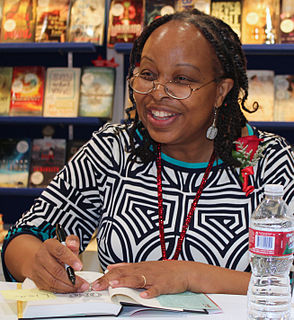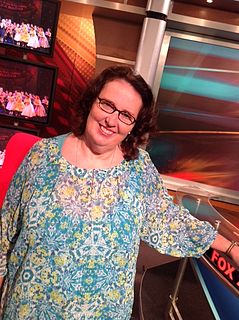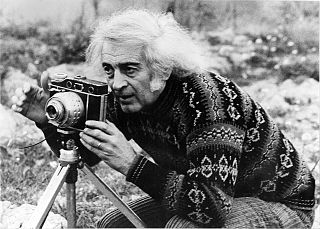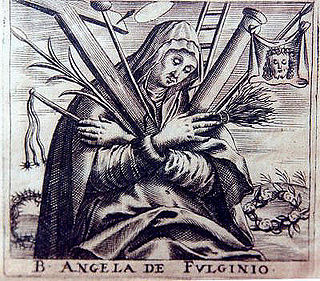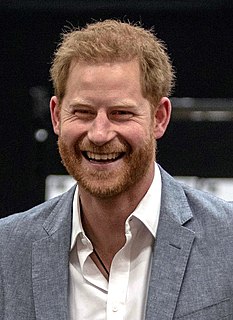A Quote by Anne Lamott
Most of me was glad when my mother died. She was a handful, but not in a cute, festive way. More in a life-threatening way, that had caused me a long time ago to give up all hope of ever feeling good about having had her as a mother.
Related Quotes
I love my mother for all the times she said absolutely nothing.... Thinking back on it all, it must have been the most difficult part of mothering she ever had to do: knowing the outcome, yet feeling she had no right to keep me from charting my own path. I thank her for all her virtues, but mostly for never once having said, "I told you so.
I'm very objective about what I want to have happen to my protagonists and where that has to come from. On one hand, it does help me that I had a mother who might have taken the last dollar and bought a pack of cigarettes or something, but I also had a mother who exposed me to art, music, other religions, different foods. My mother was very adventurous in her own way, so she fed the part of me that was going to grow up to be a writer. But there's always, too, the opposite response that helps me to create.
[My mother] died a few months ago, and when she was dead I kissed her lips. For me it was a beautiful moment. From then on I started living with her, asking her from time to time if she was alright, if she was pleased with me. But these things are far greater than photography, and I probably shouldn't be speaking about them.
I never modeled myself after anyone. The person who had most influence on me was my mother, but it was really for her strength and courage more than her style, even though she had a lot of style. In a weird way, looking at pictures of me when I was 17 or 18, I was dressing the same way. I haven't changed very much.
The idea of the book ["The Japanese Lover"] came in a conversation that I had with a friend walking in the streets of New York. We were talking about our mothers, and I was telling her how old my mother was, and she was telling me about her mother. Her mother was Jewish, and she said that she was in a retirement home and that she had had a friend for 40 years that was a Japanese gardener. This person had been very important in my friend's upbringing.
...fact was she knew more about them than she knew about herself, having never had the map to discover what she was like. Could she sing? (Was it nice to hear when she did?) Was she pretty? Was she a good friend? Could she have been a loving mother? A faithful wife? Have I got a sister and does she favor me? If my mother knew me would she like me? (140)
In that time and by God's will there died my mother, who was a great hindrance unto me in following the way of God; my husband died likewise, and in a short time there also died all my children. And because I had commenced to follow the aforesaid way and had prayed God that He would rid me of them, I had great consolation of their deaths, albeit I did also feel some grief.
I wandered over across the hall where they were showing a short movie about vasectomies. Much later I told her that I'd actually gotten a vasectomy a long time ago, and somebody else must have gotten her pregnant. I also told her once that I had inoperable cancer and would soon be passed away and gone, eternally. But nothing I could think up, no matter how dramatic or horrible, ever made her repent or love me the way she had at first, before she really knew me.
When I was a child and I was upset about something, my mother was not capable of containing that emotion, of letting me be upset but reassuring me, of just being with me in a calming way. She always got in a flap, so I not only had my own baby panics, fears and terrors to deal with, but I had to cope with hers, too. Eventually I taught myself to remain calm when I was panicked, in order not to upset her. In a way, she had managed to put me in charge of her. At 18 months old, I was doing the parenting.
A lot of people say that Eleanor Roosevelt wasn't a good mother. And there are two pieces to that story. One is, when they were very young, she was not a good mother. She was an unhappy mother. She was an unhappy wife. She had never known what it was to be a good mother. She didn't have a good mother of her own. And so there's a kind of parenting that doesn't happen.
I don't believe in regretting - one should try to move on. My mum was good at that. She was deeply in love with my father, and he died when I was nine. She remarried, and her second husband died, too. I saw the grieving process she went through. My mother had this way of moving on. It was a fine trait.


